Nghe An National Assembly delegation discussed in groups about draft laws
The Nghe An National Assembly Delegation made many practical comments, focusing on perfecting the Law on Personal Data Protection and laws related to litigation.
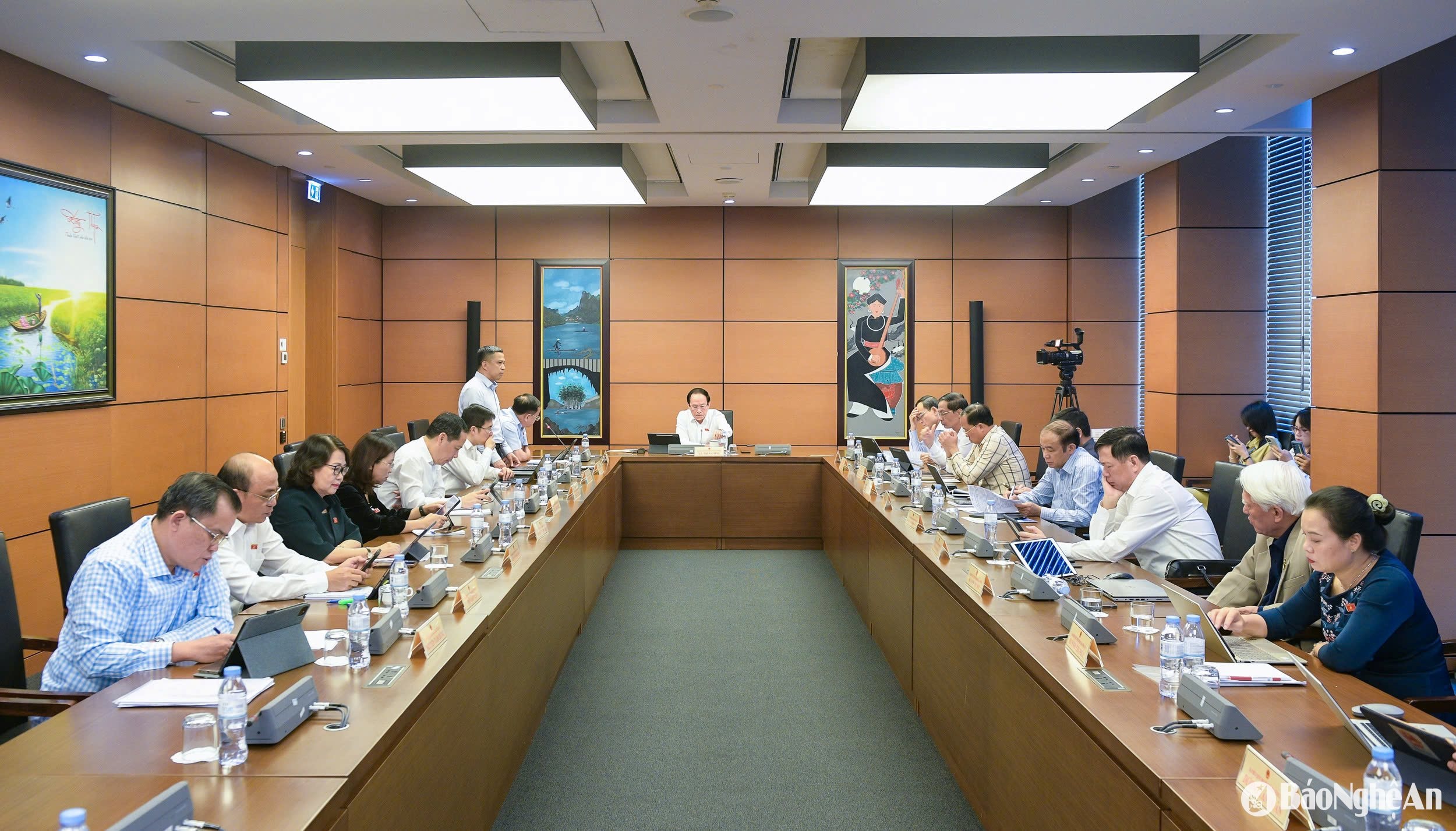
On the afternoon of May 12, the National Assembly discussed in groups: the Draft Law on Personal Data Protection; the Draft Law on amending and supplementing a number of articles of the Civil Procedure Code, the Administrative Procedure Law, the Juvenile Justice Law, the Bankruptcy Law and the Law on Mediation and Dialogue at Court; the Draft Law on amending and supplementing a number of articles of the Law on Election of National Assembly Deputies and People's Council Deputies; the shortening of the term of the 15th National Assembly and People's Councils at all levels, term 2021 - 2026.
Discussing at Group 4 with delegations: Hai Phong city and Ba Ria - Vung Tau province, the National Assembly Delegation of Nghe An province had 3 opinions.
Comments on the jurisdiction when organizing a 3-level People's Court
Basically agreeing with the Draft Law amending and supplementing a number of articles of the Civil Procedure Code, the Administrative Procedure Law, the Juvenile Justice Law, the Bankruptcy Law and the Law on Mediation and Dialogue at Court, Mr. Tran Nhat Minh - full-time National Assembly member of Nghe An delegation said that the amended contents are necessary to adjust the authority to resolve civil and administrative cases to suit the organizational model of the Court and the Procuracy at 3 levels.
The main content is the transfer of authority when there is no longer a district and high-level People's Court to the regional People's Court, provincial People's Court and Supreme People's Court.
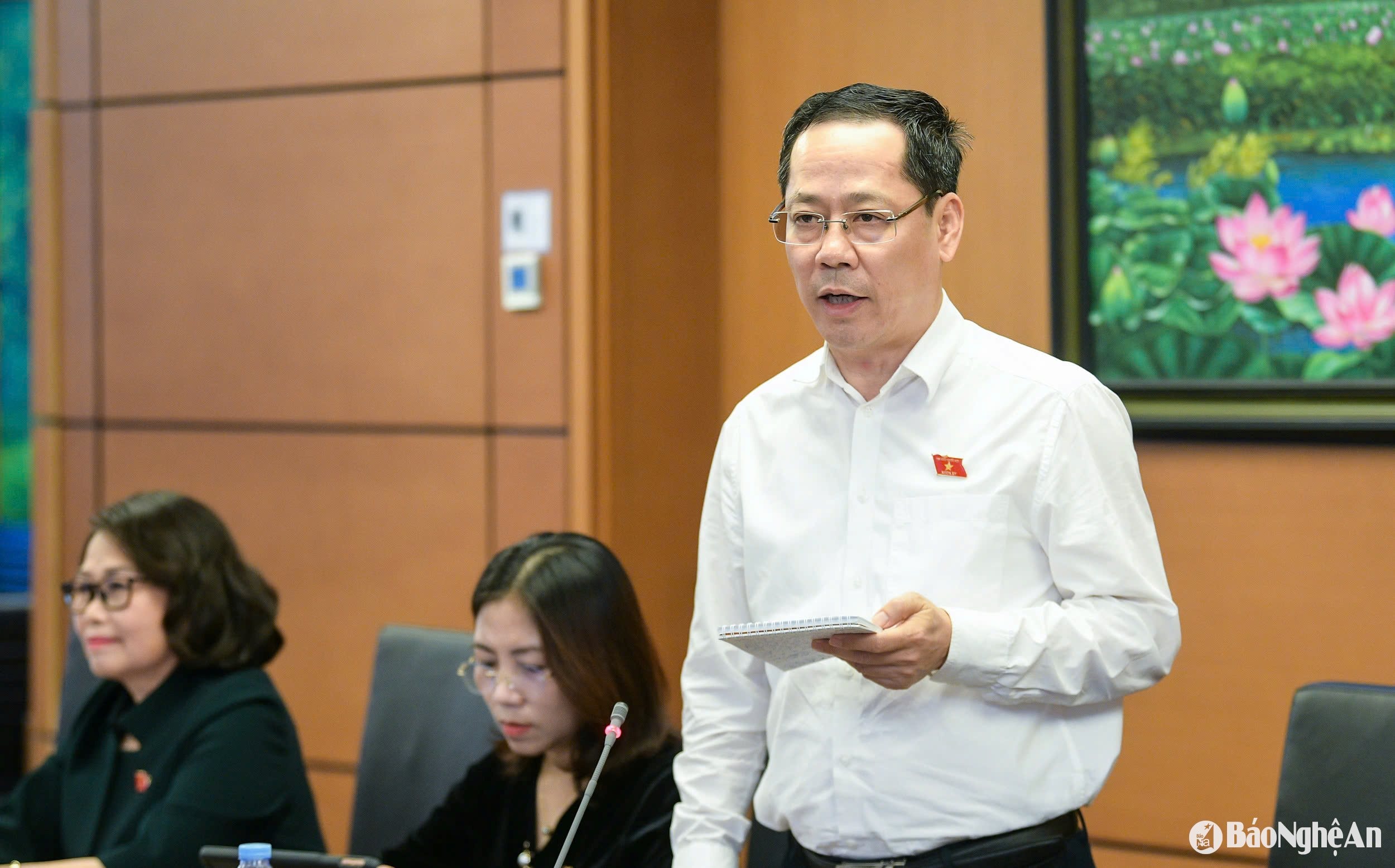
Regarding the amendments to the Civil Procedure Code, the delegates commented: The jurisdiction of specialized courts in regional People's Courts has not been clearly defined regarding labor disputes and requests. According to current regulations, labor disputes and requests are under the jurisdiction of district-level People's Courts.
However, according to the organizational structure of the regional People's Court in the Draft Law amending and supplementing a number of articles of the Law on Organization of People's Courts, there is no specialized labor court. Therefore, the delegate proposed to add this authority to the Civil Court under the regional People's Court.
The delegate proposed to clearly stipulate that for regional People's Courts that do not have specialized courts, the Chief Justice of the regional People's Court is the person responsible for organizing the trial work and assigning judges to resolve cases within their jurisdiction.
Delegate Tran Nhat Minh also raised some opinions regarding the transition of handling cases when operating under the new model of 3 levels: supreme, provincial, and regional.
Mr. Tran Nhat Minh also expressed his agreement with the content of the Draft Resolution of the National Assembly on shortening the term of the 15th National Assembly and the term of People's Council deputies at all levels from 2021 to 2026.
Protecting children in the digital environment
Commenting on the Draft Law on Personal Data Protection, Mr. Pham Phu Binh - Member of the National Assembly, full-time member of the National Assembly's Committee on National Defense, Security and Foreign Affairs, representative of Nghe An delegation, commented on a number of contents, especially related to regulations on handling children's personal data.
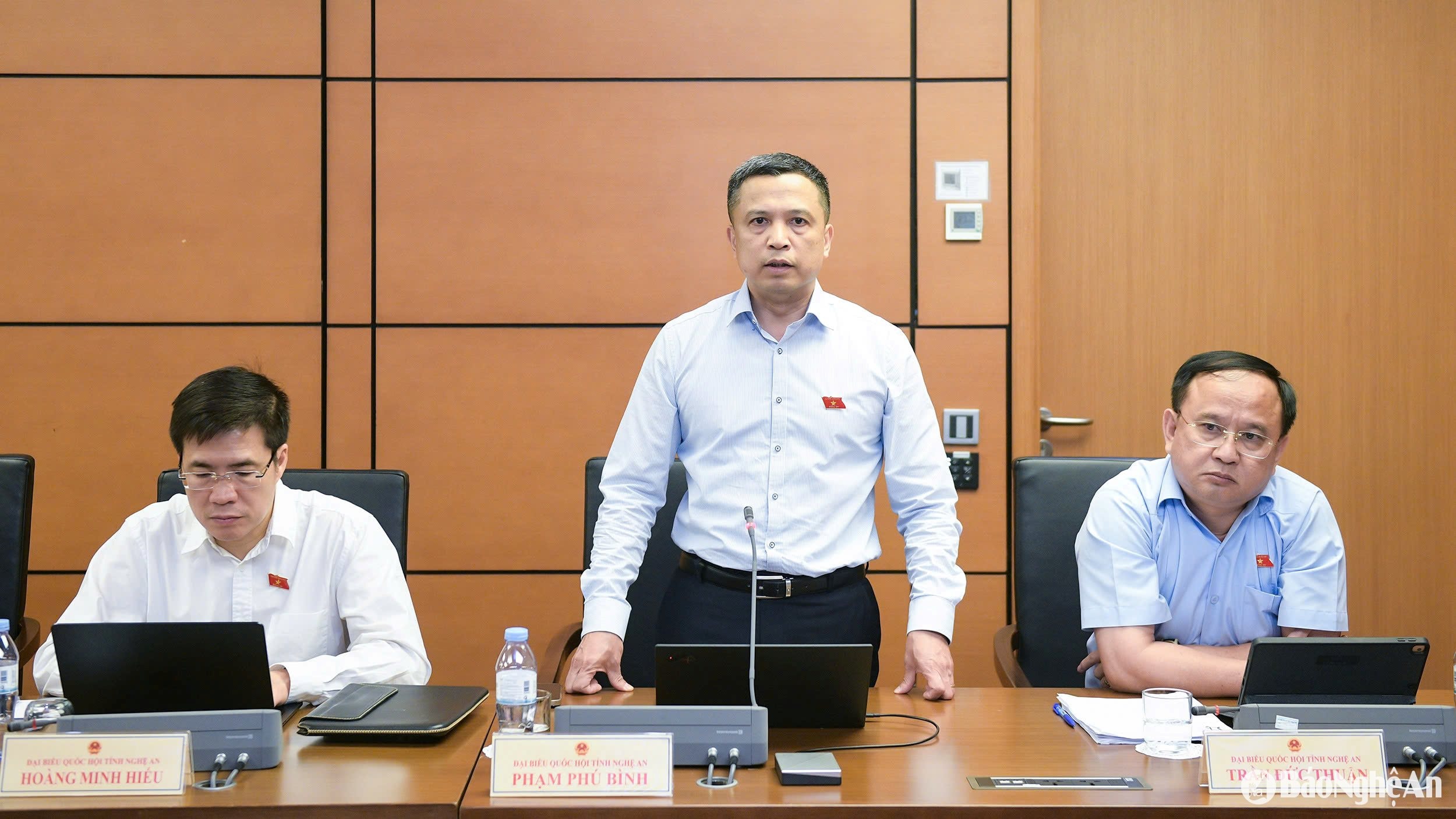
Delegates agreed with the view that priority should be given to the opinion of legal representatives in deciding on the processing of children's personal data, because this is a vulnerable group that does not yet have full civil capacity; however, it is necessary to research and review it appropriately to avoid duplication and inconsistency.
The delegate proposed to review the concept of "children" in the legal system. The current Civil Code does not use this concept but stipulates "minors", divided into 3 groups: under 6 years old, from 6 to under 15 years old and from 15 to under 18 years old. Meanwhile, the 2016 Law on Children defines children as people under 16 years old, while the 1989 United Nations Convention on the Rights of the Child, of which Vietnam has been a member since 1990, defines children as people under 18 years old, unless national law stipulates the age of majority earlier. The delegate suggested that the draft should be in harmony and consistent with international law and current laws.
Delegates said that, with the current situation of children using social networks from a very early age, protecting personal data is urgent. The law needs to provide stronger, more specific and feasible measures to protect children in the digital environment.
The delegate from Nghe An also commented on the regulations related to deleting personal data. The draft currently stipulates a 72-hour deadline for deleting all data upon request of the subject, which is unrealistic, especially for businesses with complex data systems.
In addition, the Law should add provisions allowing partial deletion of data, such as stored credit card information after a transaction, to increase flexibility and better protect individual privacy.
Speaking at the discussion session on the Personal Data Protection Law Project, Major General Tran Duc Thuan, as a member and full-time National Assembly deputy at the National Assembly's Committee on National Defense, Security and Foreign Affairs, the agency in charge of reviewing the Law project, provided additional content during the review process and hoped to receive many specific and in-depth comments from National Assembly deputies to perfect the bill to ensure both feasibility and quality.
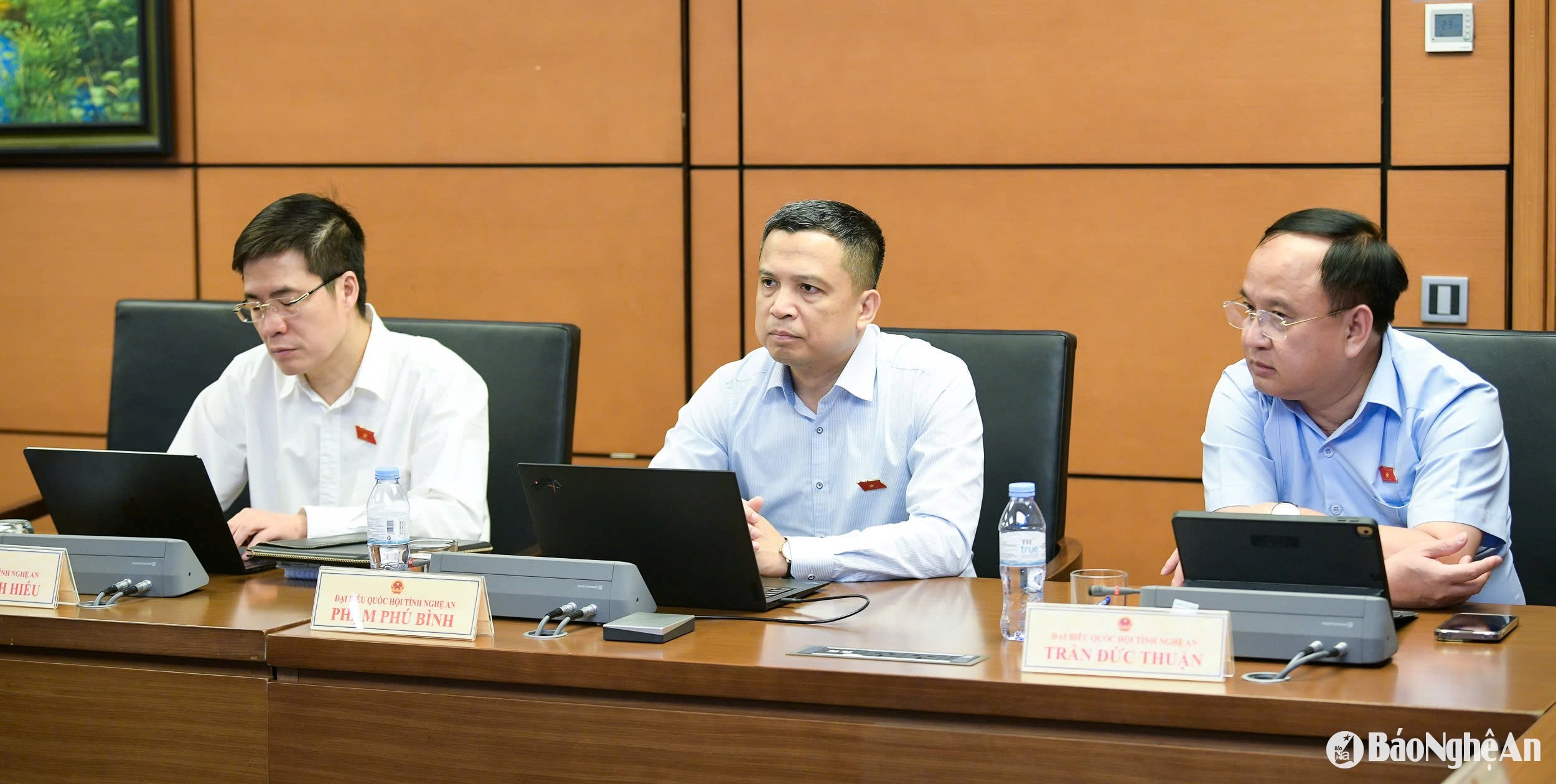
According to the Major General, this is a difficult draft law, built in the context that Vietnam has only had 2 years of implementing Decree 13 of the Government on personal data protection. The implementation has not been long enough to fully assess the advantages and difficulties.
According to the delegate, the complexity of the bill comes from both the technical content and the legislative technical factors. In addition, international views on personal data protection are still inconsistent and are governed by specific political and social contexts. Therefore, Vietnam cannot mechanically copy foreign models, but needs to build a legal corridor that is suitable for practice, balancing between protecting human rights and promoting socio-economic development.
The bill proposes 11 rights and three obligations of individuals related to personal data; at the same time, it stipulates the responsibilities of agencies and organizations in protecting personal rights.
During the review process, the Committee on National Defense, Security and Foreign Affairs conducted an in-depth survey in six key areas including: information technology, e-commerce, finance - banking, healthcare, education and public administration.
However, through surveys, many agencies and organizations expressed concerns about high compliance costs and low feasibility if the law is enacted as currently drafted. For example, the regulation on deleting data within 72 hours is assessed by banks as likely to cost them thousands of billions of VND to meet technical and personnel requirements.
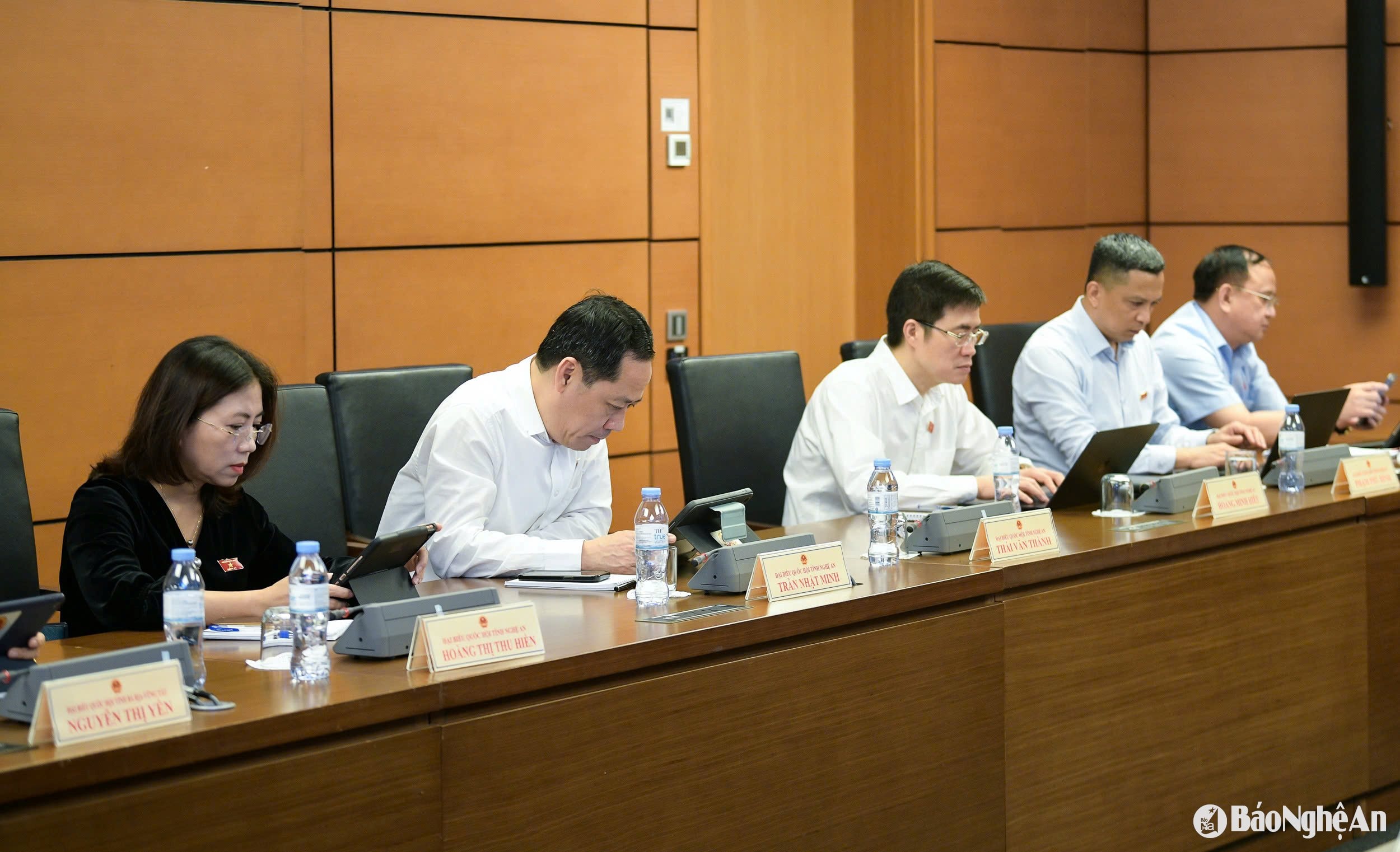
Or the rights such as: "right to know", "right to consent", "right to withdraw consent" or "right to request data deletion" in the draft law are facing many concerns. The delegate clearly stated: The right to know needs to determine the specific scope, how much an individual can know, in the relationship between which parties; avoid abuse, especially in areas under the scope of security and top secret.
Similarly, the right to withdraw consent or request data deletion also needs to establish a clear mechanism of proof, avoid disputes and ensure feasibility, especially in financial and banking transactions where there are mandatory data storage requirements.
Based on the opinions of agencies, organizations, experts and National Assembly deputies, the Committee has made initial adjustments to the draft law. In the coming time, based on the results of discussions in groups and in the hall, the Committee will continue to review and complete the contents with different opinions to ensure that the draft law is feasible, consistent and suitable for practical implementation when promulgated.

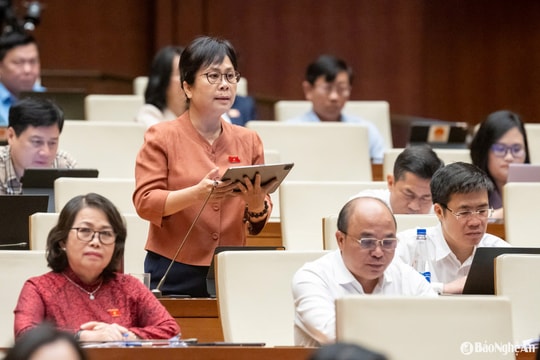
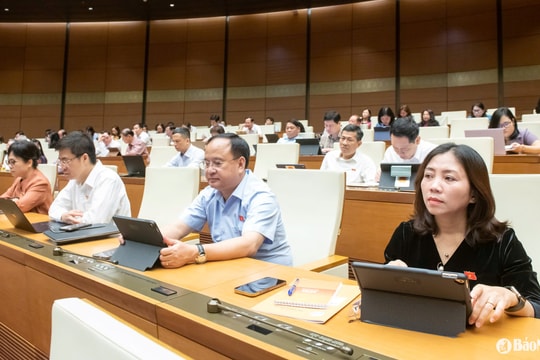
.jpg)

